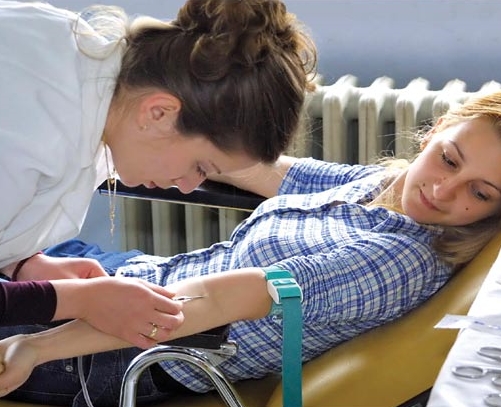Master Your Career: Essential Hospital Phlebotomy Training Tips & Certification Guide
Introduction
Embarking on a career in hospital phlebotomy can be both rewarding and fulfilling. As a vital link in the healthcare chain, phlebotomists play a crucial role in patient diagnosis and treatment. Whether you are just starting out or aiming to elevate your skills, mastering the right training strategies and earning proper certification are essential steps to ensure success. In this thorough guide, we’ll explore effective hospital phlebotomy training tips, certification requirements, practical insights, and how to excel in this dynamic healthcare field.
Understanding Hospital Phlebotomy
hospital phlebotomy involves collecting blood samples accurately and safely for laboratory testing. this role demands technical proficiency, patient care skills, and adherence to strict safety protocols.The demand for certified phlebotomists is soaring due to the increasing need for laboratory diagnostics across healthcare settings.
Why Certification Matters in Phlebotomy
Certification not only validates your skills but also boosts your credibility and employability. Healthcare employers prefer certified professionals as they demonstrate a commitment to excellence and adherence to industry standards.
Key benefits of certification include:
- Enhanced job prospects and higher earning potential
- Recognition of competency and professionalism
- Improved patient safety and sample integrity
- Compliance wiht hospital and state regulations
Essential Hospital Phlebotomy Training Tips
To excel in hospital phlebotomy, consider these proven training tips aimed at developing practical skills and confidence:
1. choose Accredited Phlebotomy Training Programs
Select programs accredited by reputable bodies such as the american Society for Clinical Pathology (ASCP) or National Phlebotomy Association (NPA). Accredited training ensures comprehensive education covering anatomy, technique, safety, and legal considerations.
2. Focus on hands-on Practice
Practical experience is crucial. Seek programs that offer lab sessions, supervised practice, and internships in hospital settings. Real-world practice improves technique and reduces errors.
3. Master Venipuncture and Capillary Collection
Gain proficiency in both venipuncture (drawing blood from veins) and capillary blood collection (heel sticks or finger pricks). Each method requires specific skills and equipment handling.
4. Learn Regarding Infection Control & Safety Protocols
hospital phlebotomy involves handling biohazardous materials. always follow Worldwide Precautions, proper PPE usage, and infection prevention practices to protect yourself and patients.
5. Develop Excellent Patient Communication Skills
Building trust and reducing patient anxiety improves sample quality. practice empathetic communication, explaining procedures clearly, and ensuring patient comfort.
6. Stay Updated With Industry Regulations
Keep abreast of OSHA,CLIA,and hospital-specific policies. Compliance ensures safe and legal specimen collection.
7.Obtain Necessary Certification
After completing your training, pursue certification through recognized organizations to validate your skills and boost employment prospects.
8.Commit to continuing Education
Healthcare is ever-evolving. Engage in ongoing learning through workshops, webinars, and refresher courses to stay current in new techniques and regulations.
Certification Process for Hospital Phlebotomy
Certification can significantly advance your career. Hear are the typical steps involved:
- Complete an accredited phlebotomy training programme (minimum 40-80 hours of coursework and practice).
- Gather required documentation including training transcripts, supervised practice hours, and identification.
- Pass a certification exam administered by organizations such as ASCP,NHA,or ASPT.
- Maintain certification through ongoing CEUs (Continuing Education Units).
Popular Certification Organizations
| Institution | Certification Title | Eligibility | Validity |
|---|---|---|---|
| American Society for Clinical Pathology (ASCP) | Certified Phlebotomy Technician (CPT) | Completion of training & exam | 4 years |
| National Healthcareer Association (NHA) | Certified Phlebotomy Technician (CPT) | Training + exam | 2 years |
| American Certification Agency (ACA) | Certified Phlebotomy technician (CPT) | Training + exam | 5 years |
Benefits of Proper Phlebotomy Training & Certification
Investing in quality training and certification leads to tangible benefits:
- Higher employability: Hospitals prefer certified professionals with proven skills.
- Increased earning potential: Certified phlebotomists often earn more than non-certified counterparts.
- Better patient interaction: Training enhances interpersonal skills, reducing patient anxiety.
- Job security and career advancement: Certified professionals are more likely to be promoted or entrusted with complex tasks.
Practical Tips To Succeed in Hospital phlebotomy
- Practice good documentation and record-keeping.
- Develop a systematic approach to sample collection to minimize errors.
- Always double-check patient identification to avoid mistakes.
- Maintain a clean and organized workspace.
- Seek feedback from supervisors and peers for continuous improvement.
Sharing real-world experiences can also be insightful. A typical case involves handling challenging veins or managing anxious patients-patience and technique are key to successful blood draws.
Case Study: From Novice to Pro in Hospital Phlebotomy
Anna, a newly certified phlebotomist, started her career in a busy urban hospital. Initially anxious about arduous veins,she dedicated extra practice time and sought mentorship from senior staff.Within six months, she became proficient in both venipuncture and pediatric collections. Her commitment to ongoing learning and adherence to safety protocols earned her praise from colleagues and a promotion to lead technician. Anna’s story highlights how proper training, certification, and practical experience can accelerate your career in hospital phlebotomy.
Conclusion
Mastering hospital phlebotomy requires a combination of proper training, certification, and practical experience. By following the essential tips outlined in this guide, aspiring phlebotomists can develop the skills necessary to excel in this vital healthcare role. Certification not only confirms your competency but also opens doors to higher-paying and more rewarding positions. Remember, continuous education and dedication to best practices ensure long-term success and career growth in the dynamic world of hospital phlebotomy.
Start your journey today by choosing accredited training programs, honing your technical and communication skills, and obtaining recognized certification. Your commitment to excellence will benefit patients, healthcare providers, and your professional advancement for years to come.
